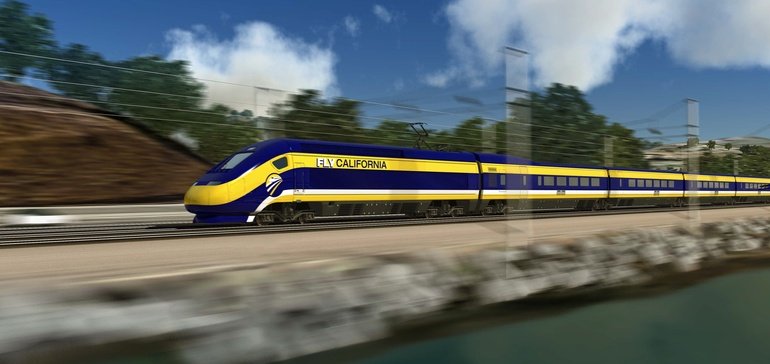The California High-Speed Rail Authority is moving forward with a potential $1.6 billion Request for Proposals process for a 30-year track and systems contract for the beleaguered and scaled-back Northern-to-Southern California bullet train project, despite objections from the Federal Railroad Administration.
The authority issued the RFP to three design-build groups Dec. 19, one day after CHRSA CEO Brian Kelly said it received the FRA’s letter stating it would not approve the RFP as written. The administration raised several objections to the authority’s plans to issue such a large contract when it was still, according to the FRA, still struggling with delays related to ongoing construction and had failed to demonstrate funding commitments for the new work.
Kelly told the board members that the authority would reach out to the FRA to address its concerns and discuss potential RFP modifications, which primarily pertained to technical elements.
The total cost for the Northern-to-Southern California bullet train route most recently was pegged at $77 billion. Nevertheless, soon after Gov. Gavin Newsom took office last year, he temporarily shelved all but the 119-mile, $10.6 billion part of the route between Bakersfield and Merced.
The work in the design-build-maintain contract now moving forward will cover “design and construction of trackwork, railway systems, and electrification, as well as testing and commissioning, maintenance of the underlying civil works and the track and systems work, and construction of necessary maintenance facilities” in the first of five segments between Bakersfield and San Jose, far beyond the Bakersfield-Merced route.
The groups in the running for the project are:
- Bombardier-Salcef-Weitz Consortium — Bombardier Transportation (Holdings) USA Inc., Salcef S.p.A., The Weitz Company LLC and Bombardier Transportation (Global Holding) UK Limited.
- California High-Speed Rail Constructors — Fluor Enterprises Inc., Balfour Beatty Infrastructure Inc., AECOM, SYSTRA and Egis Rail.
- Hitachi Acciona Copasa California Rail Partners — Hitachi Rail STS USA Inc., Acciona Construction USA Corp., S.A. de Obras y Servicios, COPASA, Hatch Associates Consultants Inc., Typsa; Colas Rail, Ferrovie dello Stato Italiane S.p.A., Hitachi Rail STS S.p.A. and Acciona Construccion S.A.
Staff members, responding to concerns on the part of board member Daniel Curtin, said the decision to let out all segments to the same consortium will help to ensure continuity when the complete San Jose-Bakersfield line is built, and that the authority is using the “building block” approach, releasing each segment as funding becomes available. It is only the first segment that is $1.6 billion, and the maintenance portion contains escalation clauses to account for cost increases in the next 30 years.
Randal O’Toole, a senior fellow at the Cato Institute, libertarian think tank, told Construction Dive that one of the reasons the authority is so persistent at taking such big steps could be that it’s trying to run out the clock on the Trump administration, hoping that a Democrat in the White House might be more sympathetic to its mission.
In May, the FRA put the authority on notice that it intended to terminate a $928.6 million grant because the Merced-Bakersfield segment had not made enough progress and would likely not meet agreed-upon deadlines by Dec. 31, 2022. In addition, the FRA threatened to take back $2.5 billion of American Recovery and Reinvestment Act funds. The authority is suing the FRA and the USDOT in an effort to stop the cancellation of the grant.
Even if a Democrat is elected president, O’Toole said the authority might not have to repay the FRA. He added he doubts the money will be available to pay for the rest of the bullet train construction and other high-speed projects favored in a potential Green New Deal, a resolution introduced by House and Senate Democrats that lays out a plan for tackling climate change.
“It is clear,” O’Toole said, “that the CHSRA is operating under the assumption that it will get the funding to finish the project. No one else thinks that. It really ought to operate under the assumption that it won’t get that funding and figure out how most productively to use the resources it has left without hanging a giant millstone on future generations.”
Curtin also mentioned during the December board meeting the CHSRA Peer Review Group’s suggestion that the authority wait to pursue the work outlined in the RFP and explain it more fully in the next business plan, which must be submitted to the state legislature by May 1. In that plan, the authority must include its most recent ridership and revenue projections, a progress report for the prior two-year period and challenges facing the bullet train project.
+info: Construction dive



